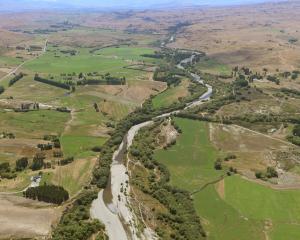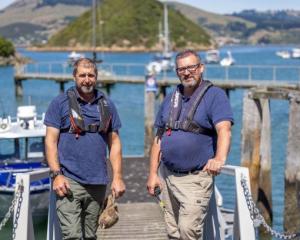
The attempt by some Otago Regional Council (ORC) elected members to remove chairwoman Marian Hobbs is an example of how regional councils can be captured by commercial agricultural interests who do not want to improve environmental outcomes.
While regional councils have a legal obligation to protect the environment for future generations, some of the worst water quality issues can be found across New Zealand in areas where regional councils have promoted and protected intensive agricultural interests over the environment.
Claims from some Otago regional councillors that they have actually worked for many years to get to where we have got to are bold considering the ORC has known since 1991 that it needed to process these so-called ‘‘Goldfield’’ deemed permits consents — and has left their replacement to the last minute.
Not only that, but the first National Policy Statement for Freshwater Management, which put legal obligations on regional councils to improve freshwater, was introduced six years ago. It is hardly a surprise that the council had to meet water quality standards.
What the coup leaders are saying is that the ORC does not wish to deliver on its core functions of protecting the environment for future generations.
Certain Otago regional councillors wish to ignore national rules to protect the environment, and Ms Hobbs has become an inconvenience.
The ORC coup leaders are sending a message across the country that when agricultural interests can capture regional councils, then you can slow down, frustrate or even defeat the Government’s freshwater reforms.
This has to be concerning for any government that wants to stop further degradation of our waterways.
It is clear that it is not the speed of the national rules that is the issue.
The problem is the speed of regional councils to tackle freshwater challenges.
Ms Hobbs promised change and to fix this and had an action plan in place to achieve real change.
We know that Kiwis are impatient to see their rivers and lakes cleaned up and now every environmentally aware New Zealander is looking at the ORC, worried that once again a regional council will turn its back on the environment.
A nationwide poll conducted for Fish & Game this year by Colmar Brunton shows that more than 76% of New Zealanders are concerned about water quality.
If regional councils are unable to live up to their legal obligations, it is time to consider if they are the fit and proper people to restore our environment.
It seems there is a need for the Government to step in and establish a national body like a water commission to make regional councils do the right thing.
The ORC must ensure that New Zealanders, including its own ratepayers, are not robbed of the ability to swim, fish and gather food from their local waterways.
For too long, local authorities have failed to balance irrigation and agricultural interests alongside their responsibilities to protect the environment for future generations.
Sadly it looks like the ORC is planning on underlining how hard it is to bring positive change for the environment.
- Martin Taylor is chief executive of Fish & Game New Zealand.












